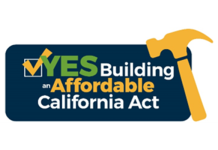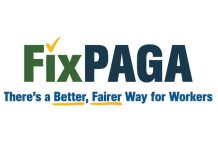SACRAMENTO, CA — The California Chamber of Commerce has released its list of Job Creator bills, calling attention to nine bills that will stimulate the economy and improve the state’s jobs climate.
The 2019 job creator bill list includes the following proposed legislation:
AB 23 (Burke; D-Inglewood) Workforce Coordination. Establishes the Deputy of Business and Workforce Coordination, which will help provide California with a workforce that is employment-ready and trained in industry sectors that have the greatest workforce needs.
AB 371 (Frazier; D-Discovery Bay) Creates Incentives for Freight Efficiency. Creates and maintains job growth in the freight sector by providing incentives to purchase clean fleet technology, evaluating appropriate public and private resources that can be used to ensure freight competitiveness in California, and confirming that agencies are engaging in programs that maintain resilience against economic downturns.
AB 906 (Cooley; D-Rancho Cordova) Economic Development Plan. Creates the California Economic Development Strategic Action Plan within the office of GO-Biz, to develop a comprehensive agenda that evaluates various economic factors, including emerging and growing industries, to set statewide economic goals to increase California’s national and international competitiveness.
AB 1195 (O’Donnell; D-Long Beach) Encourages Technological Innovation. Gives credit under the Low Carbon Fuel Standard to innovative crude technologies, including carbon capture and sequestration, energy storage, and renewable natural gas or biogas. Creates jobs by encouraging the development of new technology to meet California’s ambitious climate change goals.
AB 1303 (O’Donnell; D-Long Beach) Career Technical Education. Increases funding for the Career Technical Education Incentive Grant program, which provides students with relevant, industry-aligned skills training and instruction to prepare them for California’s changing job market.
AB 1545 (Obernolte; R-Big Bear Lake) Small Business Penalty Relief. Recognizes the challenges small businesses face in implementing complex state rules by allowing adjustment of civil penalties based upon specific mitigating factors, which allows these small businesses to invest more financial resources into growing their workforce.
SB 601 (Morrell; R-Rancho Cucamonga) License Relief for Disaster Victims. Allows, but does not require, state agencies that issue business licenses to reduce or waive required fees if the applicant establishes that they were displaced or affected by a declared state or federal emergency within the preceding year, which allows impacted businesses the ability to invest more of their financial resources into re-establishing their business and jobs.
SB 621 (Glazer; D-Orinda) CEQA Streamline for Affordable Housing. Would streamline litigation and thereby lower the cost to construct affordable housing projects meeting specified environmental criteria and certified under an environmental impact report by requiring that any CEQA actions challenging such projects be resolved by a court within 270 days. This reduction in litigation and costs will expedite these projects, provide more housing for workers, and additional jobs.
SB 659 (Borgeas; R-Fresno) CEQA Attorney’s Fees. Would minimize frivolous CEQA litigation challenging housing projects, thereby helping to streamline their construction and reducing costs, by requiring a court to award reasonable attorney’s fees to a prevailing respondent or real party in interest in CEQA cases challenging the development of infill housing. This reduction in litigation and costs will expedite these projects, provide more housing for workers, and additional jobs.
Classifying Bills as Job Creators
Since beginning the list in 2008, CalChamber has strongly supported policies to improve California’s business climate and nurture the economy.
If adopted, job creator legislation would encourage employers to invest resources back into the California economy and their local communities rather than spend them on unnecessary government-imposed costs. Job creating legislation promotes the following policies:
- Keeping taxes on new investment and business operations low, fair, stable and predictable;
- Reviving local economic development tools;
- Reducing regulatory and litigation costs of operating a business—especially when hiring and keeping employees;
- Reducing the cost and improving the certainty and stability of investing in new or expanded plants, equipment and technology;
- Investing in public and private works that are the backbone for economic growth; and
- Ensuring the availability of high-quality skilled employees.
For more information on the 2019 job creator bills, visit www.calchamber.com/jobcreators.
The California Chamber of Commerce (CalChamber) is the largest broad-based business advocate to government in California. Membership represents one-quarter of the private sector jobs in California and includes firms of all sizes and companies from every industry within the state. Leveraging our front-line knowledge of laws and regulations, we provide products and services to help businesses comply with both federal and state law. CalChamber, a not-for-profit organization with roots dating to 1890, promotes international trade and investment in order to stimulate California’s economy and create jobs. Please visit our website at www.calchamber.com
#####


